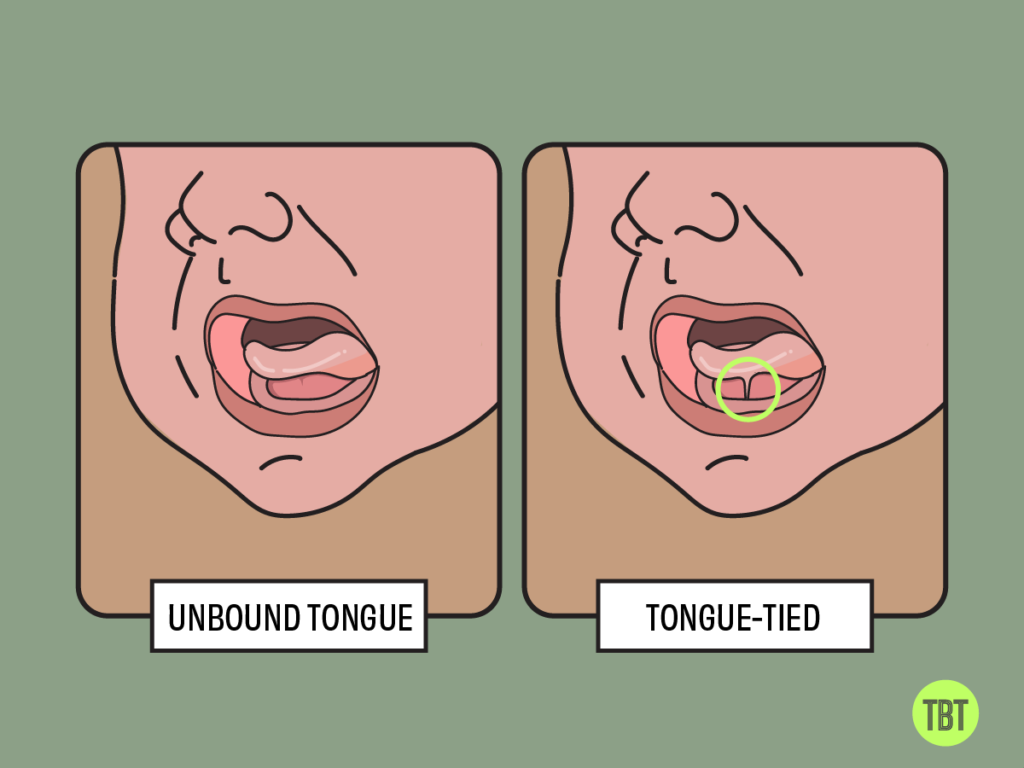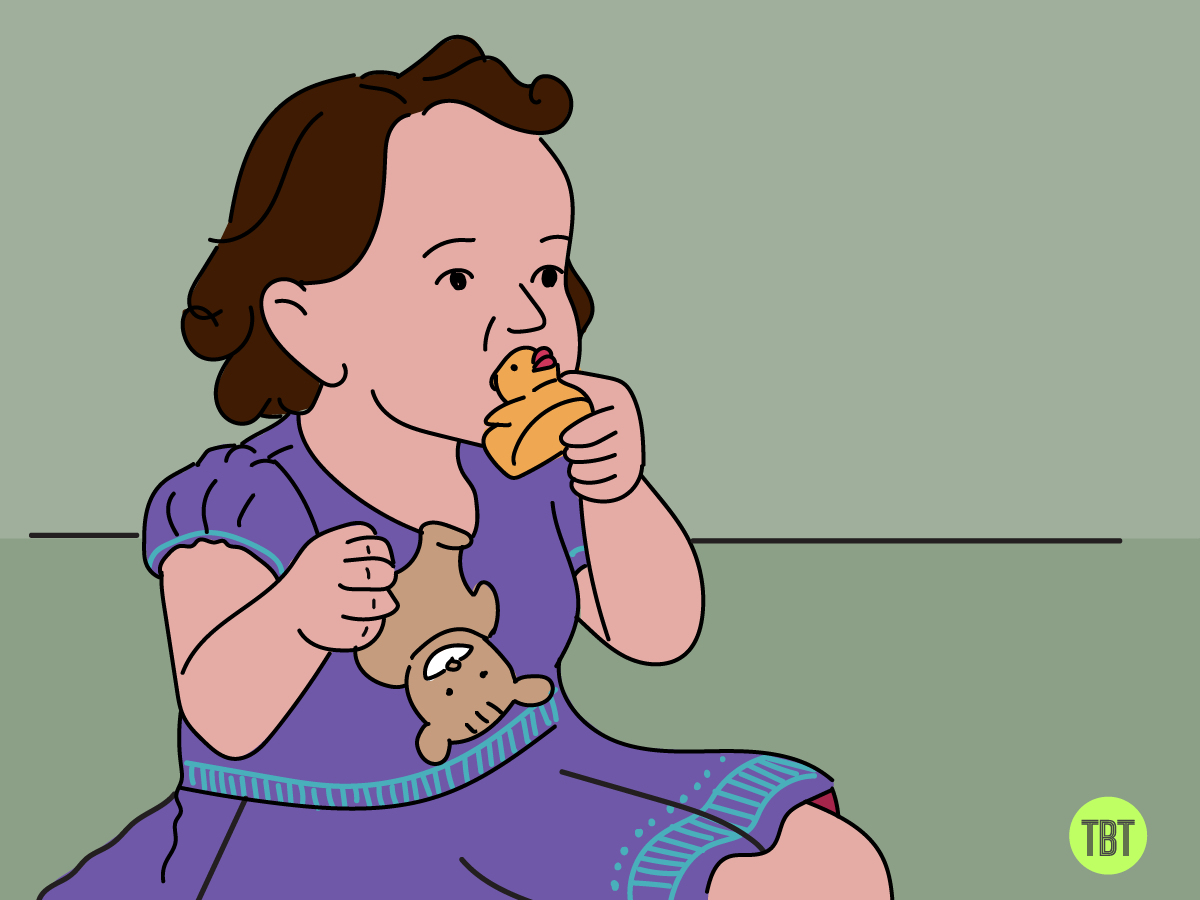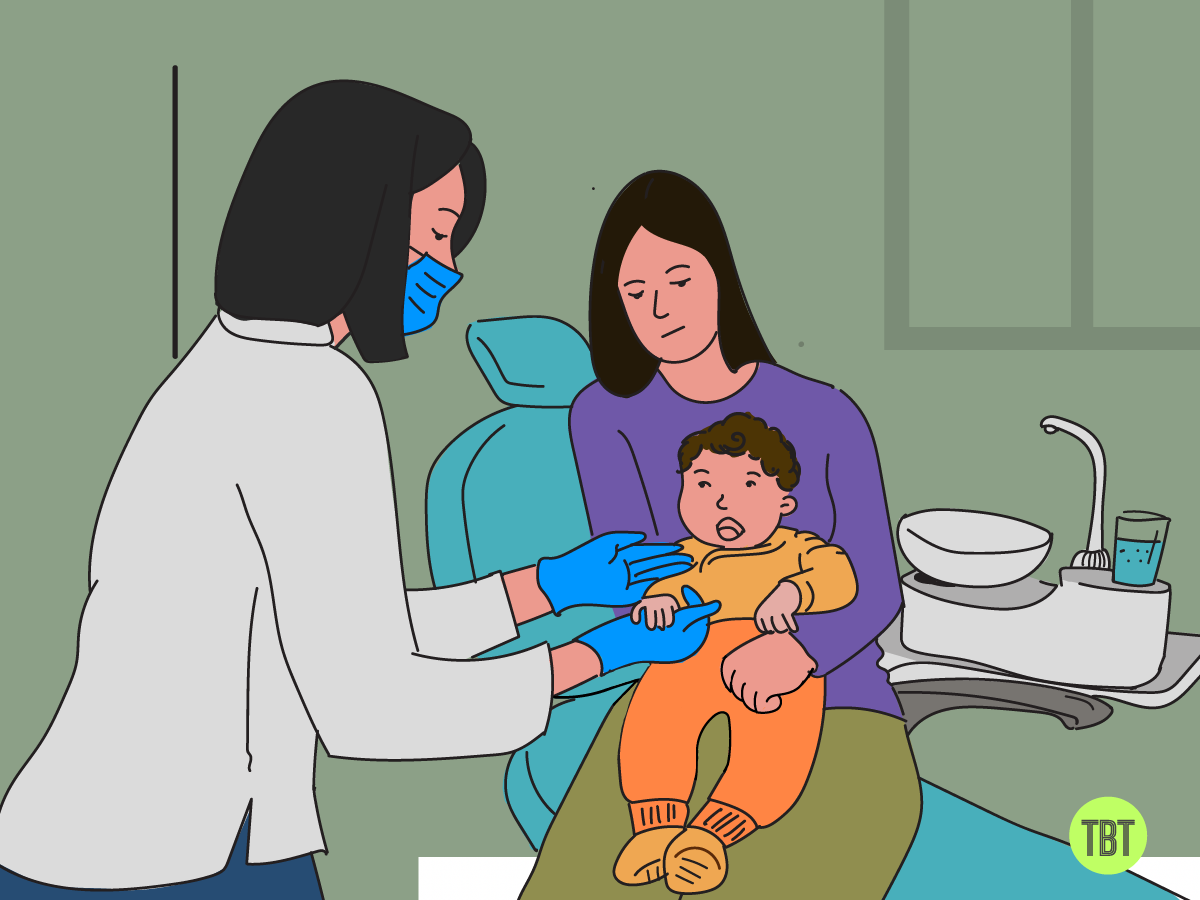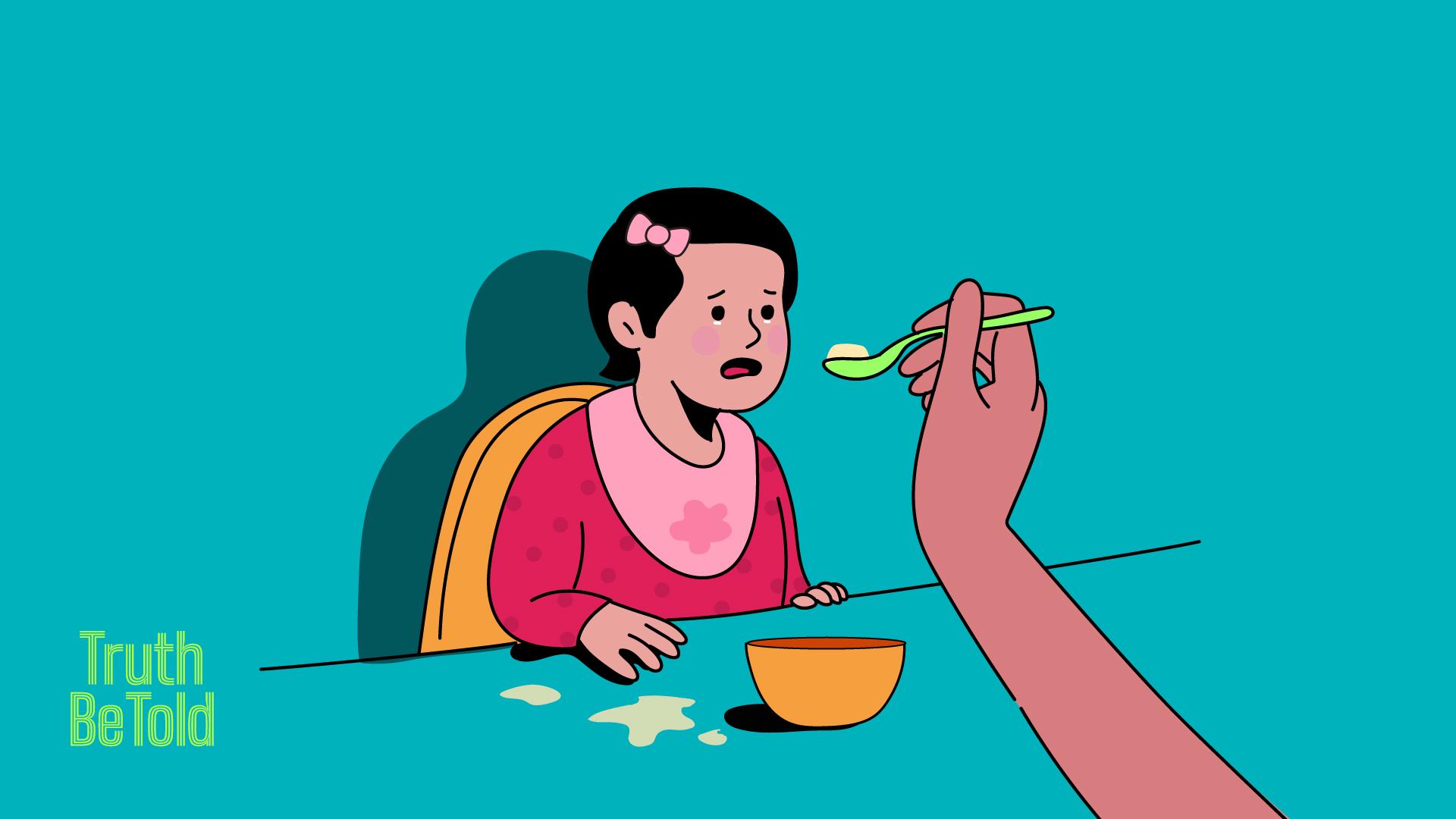Tongue-ties in newborns and how to look out for it
How I found out my baby had tongue-tie
The most trustworthy source of food and
fitness journalism in the country.
Editor’s note: Truth Be Told has completed one year—yay! Thank you all for tagging along. Now seems like the ideal time to try something new. We’re considering exploring health more broadly while continuing to cover topics on nutrition and exercise, like today’s piece by Hamsini Ravi, where she shines a light on a birth condition called ‘tongue-tie’—a term I was unfamiliar with until she brought it to my attention.
Ravi, a communications specialist in the social impact sector and a freelance writer, thoughtfully shares the story of her newborn’s struggles with this condition. If left undiagnosed, the repercussions can persist into adulthood. I learned a great deal from this piece and hope you do as well.
I.
January 2022 was an eventful month in my life. After welcoming my second child, I was flushed with endorphins and revelling in a sense of accomplishment, wonder and awe. But in less than a fortnight after my baby was born, I went from congratulating myself on ‘rocking’ my new amma-of-two gig to breaking down at a children’s dentist clinic.
A routine vaccination visit to the paediatrician revealed that my baby was not gaining enough weight. I decided to meet with a lactation consultant, a healthcare specialist who works with breastfeeding parents to troubleshoot issues.
The consultant suggested that my baby might have a “tongue-tie” and referred me to a paediatric dentist who specialises in oral-motor issues. Having only heard of a tongue-tie in the social anxiety context (like feeling tongue-tied when nervous), I didn’t fully understand what it was.
So I did what any health-anxious person in 2022 does—I turned to the internet: I googled tongue-tie with different keywords, binge-watched videos, and covertly skimmed through every Reddit thread on breastfeeding and tongue-tie.
I learnt that having a tongue-tie meant that my son had a band of tissue that was too tight and prevented his tongue from performing its full range of movement—it can’t move as freely as it should. It’s one of the many oral restrictions or limitations in the mouth that cause health problems.

How you can identify a tongue-tie
II.
This isn’t just a feeding issue—it could affect him later in life. too. It might lead to problems speaking, fussy eating, and even basic things like licking an ice cream or playing a flute. And that’s not to mention possible sleep and digestion troubles. Medical professionals estimate the prevalence of tongue-ties at 3.5-5% in the population.
Suddenly, a puzzle unravelled in my mind: my school friend who struggled with ‘rrr’ and my cousin who couldn’t lick ice cream likely had a tongue-tie or an oral restriction of some kind. Yet I couldn’t recall dentists or doctors ever clearly linking seemingly ‘simple’ issues to a tongue-tie diagnosis.
I figured out why breastfeeding has been so painful and uncomfortable since my baby arrived. A bit of pain at the start is normal, but not if it keeps going. It means something needs fixing.
While some discomfort is standard in the first days, this prolonged pain is NOT normal and requires intervention with the latch. My baby made a click-click sound while feeding, never seemed satisfied despite feeding every ninety minutes and felt hungry soon after. His head tilted to one side; his chin was set back a bit.
In short, if there was a list of signs that something wasn’t right in his mouth, he had them all.
The paediatric dentist confirmed the tongue-tie. So he couldn’t use his tongue properly to suck milk. He was trying to chew with his lips instead, which meant he wasn’t feeding well. This left him tired and still hungry after feeding, and it’s why he hasn’t been gaining weight like he should.
The dentist admitted there is no quick fix. Besides a short laser treatment to cut the tongue-tie, my son would need special exercises to improve his sucking and various mouth and face muscles. And help him breathe, eat, speak, and swallow better.
In addition to the dentist’s advice, the lactation consultant recommended ‘triple feeding.’ This involves breastfeeding first, then giving expressed breastmilk or formula. The goal was to help the baby save energy and gain weight until he could fully breastfeed on his own.
It was tough. Days merged into nights as I nursed, fed, rinsed and repeated the cycle. In between, my partner did the special mouth exercises with the baby that the dentist told us were essential. We kept at it, even when our baby screamed, to ensure the treatment worked.
His cries led to many tear-filled late-night conversations between his dad and me. Was this worth it? Would it lead to anything positive?
We’d read and heard mixed results about tongue-tie treatments, so we were not sure. I looked down at my baby, wrapped in my arms, down for a rare nap, and making the suckling motion in his sleep.
👨👩👦 Know a new parent facing breastfeeding trouble? Send this now
III.
I realised that suckling was more than an instinct for babies; it wasn’t just about food—suckling is a source of comfort and mental balance, which is why babies instantly calm down when given the breast, bottle or pacifier.
As a mother, I’d noticed how babies, mine included, often prefer to engage with objects they can put in their mouths, ignoring even the most lovingly purchased toys. More than just touching and looking, putting stuff in their mouth is an essential way for them to explore textures, shapes, and the world at large.
“There is a lot going on in the mouths of babies,” says Dr. Ipshita Suyash, a Mumbai-based paediatric dentist. “They use it to feel and discover things, and their mouths become a primary source of input for them until they begin moving and crawling.”

Babies use their mouth to explore
So, while breastfeeding was our immediate concern, tackling his tongue-tie had broader implications. This was about giving him the best possible start in life, far beyond his first feeds.
IV.
A tongue-tie manifests differently in different people. And its health impediments continue beyond infancy and even childhood.
Take the case of Poojitha Makhija, a 26-year-old resident of Mumbai. She first learned about her tongue-tie during a high school dental check-up.
“It was the first time I had heard of such a thing. I was told that it was a minor procedure and I could get it done immediately,” she told me. “However, life came in between, and I never got around to doing it.”
Years later, in her professional life, Poojitha struggled with certain speech aspects. “While I knew that I couldn’t pronounce certain words and would rehearse them in my head before speaking and people always told me that I wasn’t very clear, I had never thought of my speech as a big issue,” she reminisces.
When prescribed braces for teeth alignment, she realised she needed help beyond that. Her speech therapist referred her to a dentist specialising in tongue-tie releases.
“The dentist showed me how my tongue-tie impacted much more than my speech,” Poojitha added. She then underwent a procedure to release her tongue-tie. But that was just the start. She also embarked on a regimen of oral motor exercises, accompanied by ongoing speech therapy.
Poojitha found the changes eye-opening. “It was a revelation to relearn phonics and pronunciation as an adult,” she said. She immediately began to notice the benefits.
“Three days after my release procedure, when I was working out, I realised that just being able to breathe better had a huge impact on my workout and daily routine,” she said. She also found that she could swallow textured foods more easily and started experiencing more restful sleep.
The changes went further. “I used to feel claustrophobic in closed spaces and when travelling to high-altitude places. That’s changed now,” she added.
But the most meaningful change for Poojitha was psychological. “I’ve become less self-conscious about my speech,” she said.
👨👩👦 Know any new parents? Do share this with them
V.
The lack of awareness about how oral restrictions like tongue-ties can affect health is not just a problem among the general public; even health professionals like paediatricians, dentists, and gastroenterologists are often uninformed.
They encounter a range of symptoms that could benefit from treating tongue-ties, not just through surgical release but other therapeutic methods like occupational, physical and speech therapy.
This may be because many symptoms initially appear less severe, such as difficulty rolling the tongue to make the ‘rrr’ sound, snoring, or picky eating.
Dr. Ipshita explains some specific signs: “Not being able to say the ‘rrr-uh’ sound is common among people with oral restrictions. They compensate by saying ‘wwww-uh’, using their lips instead. Another example is picky eating, which can indicate underlying oral restrictions.”
This can have long-term consequences. “Poor chewing and swallowing can result in reflux during infancy, leading to indigestion and gut disorders in adults,” Dr. Ipshita said.
Many parents know it’s normal for toddlers to be fussy about food. But how can you tell if your child’s picky eating is a sign of something more serious?
According to Merzia Maskati Shewakramani, a Speech Language Pathologist in Mumbai, there are some red flags to watch for.
If your child is extremely selective about food to the point where they barely eat, she said, this could be a concern. For example, if they can go a whole day eating just a few small snacks like khakhra, it may require further attention, Shewakramani explained.
She also advises to look out for other signs: “Parents need to watch out for resistance in babies and toddlers to textured food and think about reflux prevalence in infancy.”
“If all these conditions hold true, picky eating may need investigation with a health professional who understands oral restrictions,” she said.

Consult a pediatric dentist early
VI.
As April 2022 came around, I found myself settling into the ‘normal’ routine of baby care—eat, play, sleep—after the first three months since his birth. I no longer needed to pump and sterilise like my baby’s life depended on it.
By 3.5 months, my baby had become a happy, bouncy baby, meeting all his daily nutritional needs through direct breastfeeding. Having achieved a steady weight gain trajectory months ago, his body and neck had gained flexibility, leading to balanced strength. The head tilt that had been a concern was now a thing of the past, and I had been enjoying pain-free nursing for a while.
While we didn’t have an easy time as parents in the first three months after his birth, I can’t imagine the difficulty he would have faced in relearning mouth breathing and swallowing.
Despair and anxiety slowly gave way to gratitude in our lives. Now, 19 months since his birth, we look back at his journey with awe and gratitude for being able to spot the issue early and having the guidance to intervene holistically.
If there’s one thing I could advise parents of newborns, it would be to consider consulting a paediatric dentist with a deep understanding of tongue-ties. Even if there’s no apparent oral restriction, their insights could significantly contribute to setting your baby on a path of lifelong health.
Jashoda might’ve seen the whole universe in her son Krishna’s mouth, but in mine, I learnt about the intricate universe of oral motor health and its profound implications for overall bodily functions.
👩⚕Let a parent know to consult a pediatric dentist
